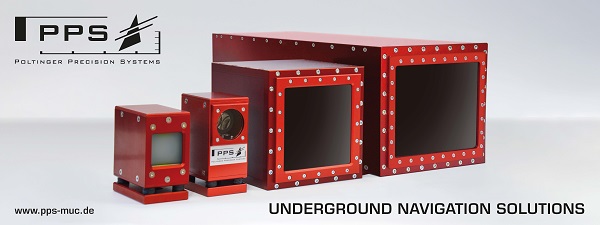Herrenknecht micromachine (AVND2400AB) safely and precisely excavates stormwater tunnels under the Dubai Airport
Aircraft take-offs above, tunnel construction below
Dubai International Airport is the hub of air traffic in the Persian Gulf: nearly 90 million international passengers are handled here each year. The operators are constantly investing in capacity expansion. As part of Dubai International Airport Expansion Phase 3, during ongoing flight operations a Herrenknecht micromachine (AVND2400AB) safely and precisely excavated three 610, 765 and 825 meter long sections for a new stormwater drainage tunnel under the taxiway.
July 10, 2019 Dubai / Schwanau, Germany. The absolutely safe and precise crossing under airport taxiways and runways is one of the supreme disciplines of mechanized tunnelling – especially when flight operations cannot be interrupted. Heave, settlement or other impairment of this highly sensitive infrastructure must be avoided at all costs. Herrenknecht tunnel boring machines in the hands of skillful tunnel builders are ideally equipped for this challenging task. The tunnelling crew from International Foundation Group, working for Dubai Aviation Engineering Projects under the project management of M.A. Kharafi & Sons, relied on Herrenknecht tunnelling technology to extend the stormwater drainage system at Dubai Airport. In March 2019, they celebrated the successful completion of the project.
Using the pipe jacking method, an AVN machine (AVND2400AB, Ø 3,025 mm) mastered the challenge of three drives of 610, 765 and 825 meter respectively under the taxiway. The result is a new drainage tunnel with a total length of 2,200 meters, which increases the airport's drainage capacity. At depths of 13 to 15 meters, the micromachine crossed under the Terminal 2 taxiways while flight operations on the ground and in the air continued smoothly and safely. On the longest drive an average of 15 meters of tunnel per day were excavated through soft soils with sandstone and siltstone. The drive remained exactly on course by precise process and control technology from VMT.
The new pipelines will efficiently collect and drain away rainwater, especially during heavy downpours, so it can no longer accumulate on the surface. This is crucial to maintaining smooth flight operations. With close to 90 million passengers per year, Dubai International Airport is one of the busiest airports in the world.
In the past, Herrenknecht technology has successfully completed a number of challenging tunnel missions, such as crossing under airports. For the extension of the baggage handling system at Zurich's Kloten Airport, a Herrenknecht Mixshield (Ø 6,280 mm) superbly excavated a 2,400 meter long tunnel under the airport grounds until 2001. In 2002, an EPB Shield (Ø 6,460 mm) tunnelled under the Minneapolis-St. Paul Airport in the United States for the newly developed 18.6 kilometer long light rail system. In Brazil, an AVN1500 constructed a 367 meter long stormwater drainage tunnel under the runway at Goiânia Airport in 2015. In 2017, two EPB Shields (Ø 6,250 mm) completed two new tunnel tubes for passenger and baggage transport with a total length of 3,842 meters under the runways at Moscow Airport Sheremetyevo in Russia. During the excavation of a 4,500 meter long metro tunnel in Barcelona, in 2018 a taxiway at El Prat Airport was crossed under over a distance of 70 meters with great success.
MACHINE / PROJECT DATA M-1804M - DUBAI AIRPORT
- Machine type: AVND2400AB
- Shield diameter: 3,025 mm
- Drive power: 315 kW
- Torque: 1,200 kNm
- Drive length: 1x 610 m, 1x 765 m, 1x 825 m
- Geology: soft soils (sandstone, siltstone)
- Client: Dubai Aviation Engineering Projects Corporation
- Main contractor: M.A. Kharafi & Sons
- Tunnelling subcontractor: International Foundation Group L.L.C.
###
Herrenknecht press release.
cover tunnel photo by: Matt Brown from London, England / CC BY
Copyright 2019-2024 TunnelContact.com






